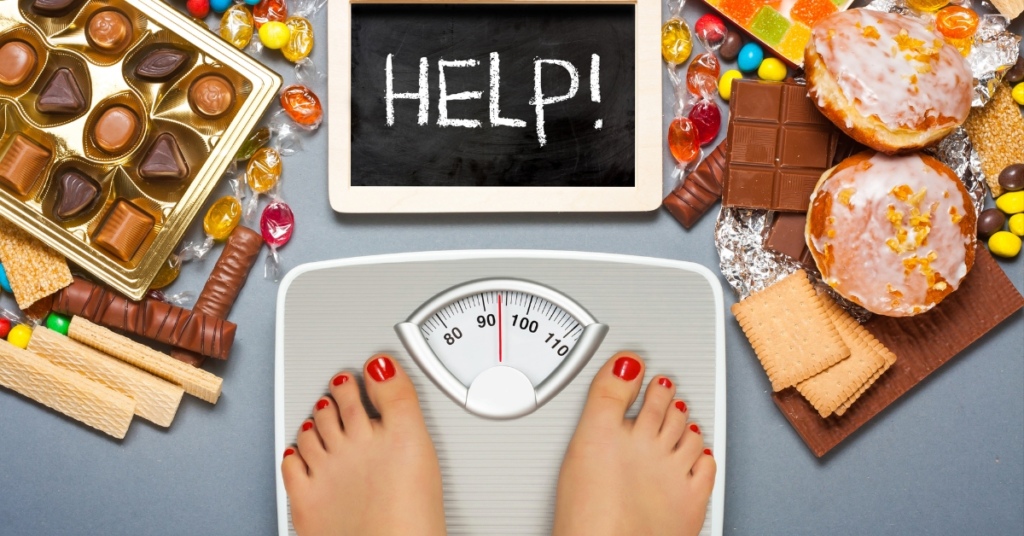Have you been looking for ways to increase your metabolism and boost your energy levels? If so, then you have come to the right place! The right foods can be your best ally when it comes to speeding up your metabolism and boosting your energy. In this blog post, we will discuss the five best and worst foods for increasing your metabolism. From foods that are rich in fiber and protein, to those that are packed with unhealthy fats, we’ll help you understand which foods you should include in your diet to boost your metabolism and keep your energy levels high.
What is metabolism and why does it matter?
Metabolism is the process by which your body converts food and drinks into energy. It involves various chemical reactions that break down molecules and create new ones. Simply put, it’s the engine that keeps your body running and functioning properly.
It is a crucial aspect of overall health because it determines how efficiently your body burns calories. A higher metabolism means that you burn more calories, even at rest. This can be particularly beneficial if you are trying to lose weight or maintain a healthy weight.
Several factors influence your metabolism, such as age, gender, genetics, and muscle mass. While you can’t change these factors, you can optimize your metabolism through various means, including your diet.
Certain foods can boost your metabolism due to their nutrient content. For example, foods rich in protein, such as lean meats, eggs, and legumes, require more energy to digest compared to carbohydrates and fats. This is known as the thermic effect of food, and it can help increase your metabolic rate.
Understanding metabolism and the impact of your diet on it is important for maintaining a healthy weight and overall well-being. By incorporating foods that boost metabolism into your diet, you can support your body’s natural processes and improve your energy levels and overall health.
The Top 5 Foods for Boosting Metabolism
If you’re looking to increase your metabolism, the good news is that certain foods may help. Here are the top 5 foods that can help boost your metabolism:
1. Protein-rich foods
Protein is essential for building and repairing muscles, and it also requires more energy to digest than other macronutrients, leading to a higher thermic effect of food (TEF). In fact, studies have shown that a high-protein diet can increase metabolic rate by up to 30%, and also reduce the drop in metabolism that often occurs during weight loss. Additionally, protein can help keep you feeling fuller for longer, which may aid in weight loss efforts.
2. Chili peppers
Capsaicin, a chemical found in chili peppers, has been shown to increase the rate at which the body burns calories. It does this by boosting metabolism, increasing fat burning, and reducing appetite. In one study, individuals who consumed capsaicin before exercise burned more calories than those who did not.
3. Green Tea
Green tea contains catechins, a type of antioxidant that may work in tandem with caffeine to increase metabolic rate. One study found that drinking green tea extract for 12 weeks increased metabolic rate by 4%, leading to an average weight loss of 2.9 pounds. (1)
4. Whole grains
Whole grains contain vitamins that boost metabolism, including B vitamins, which help convert food into energy. Additionally, the fiber in whole grains helps slow down digestion, which may lead to a slower and more sustained release of energy.
5. Leafy greens
Leafy greens like spinach and kale are low in calories but high in vitamins and minerals that boost metabolism. They’re also a good source of fiber, which can help keep you feeling full and satisfied.
By incorporating these top 5 metabolism-boosting foods into your diet, you may be able to increase your metabolic rate and support weight loss efforts.
The Worst 5 Foods for Slowing Down Metabolism
When it comes to boosting our metabolism, certain foods can work against us and slow down the rate at which our bodies burn calories. In this section, we will discuss the top 5 foods that have been found to slow down metabolism, and why they should be avoided or consumed in moderation.
1. White Flour:
One of the worst culprits for slowing down metabolism is white flour. This refined carbohydrate has little to no fiber and is low in nutrient quality. When consumed, white flour is broken down more quickly than whole wheat goods, causing a rapid rise in blood sugar levels. This spike in blood sugar leads to a subsequent drop, leaving us feeling hungry and tired. Additionally, the lack of fiber in white flour slows down digestion, resulting in a slower metabolism overall.
2. Farmed Beef:
While protein is essential for boosting metabolism, not all sources are created equal. Farmed beef, which is often raised using antibiotics, can harm our gut bacteria. This disruption can lead to weight gain and a slower metabolism. Opting for grass-fed beef, which contains fewer antibiotics, can help mitigate this issue.
3. Conventional Apples:
While apples are generally regarded as a healthy snack option, it’s important to consider the source. Conventional apples are often treated with fungicides to prevent fungal growth during storage. These fungicides can disrupt the delicate balance of gut bacteria, leading to weight gain and a sluggish metabolism. Choosing organic apples can help avoid this issue.
4. Sugary Beverages:
Sugar-sweetened beverages, such as soda and fruit juices, can have a significant negative impact on our metabolism. These drinks are loaded with empty calories and high levels of added sugars. Consuming these sugary beverages can lead to weight gain, insulin resistance, and a slower metabolism. Opting for water, herbal tea, or naturally flavored sparkling water can help support a healthy metabolism.
5. Processed Foods:
Processed foods, including packaged snacks, frozen meals, and fast food, are often high in unhealthy fats, added sugars, and artificial additives. These ingredients can contribute to weight gain, inflammation, and a slower metabolism. Instead, choose whole, unprocessed foods that are rich in vitamins and minerals that boost metabolism, such as fruits, vegetables, lean proteins, and whole grains.
Other Factors that Affect Metabolism
While certain foods can help boost your metabolism, there are other factors that also play a role in determining your metabolic rate. Here are some additional factors to consider:
1. Physical activity:
Regular exercise can help increase muscle mass, which in turn helps boost metabolism.
2. Sleep:
Getting adequate sleep is crucial for a healthy metabolism. Lack of sleep can lead to hormone imbalances that slow down metabolism.
3. Age:
Metabolism naturally slows down as we age, so it’s important to stay active and maintain a healthy diet.
4. Genetics:
Some people are genetically predisposed to having a faster or slower metabolism.
5. Vitamins that boost metabolism:
Certain vitamins, such as vitamin B12 and vitamin D, are important for maintaining a healthy metabolism.
In addition to considering these factors, it’s important to focus on an overall healthy lifestyle in order to maintain a healthy metabolism. This includes eating a balanced diet, staying hydrated, managing stress levels, and avoiding smoking and excessive alcohol consumption.
Summary
In summary, maintaining a healthy and efficient metabolism is key to achieving and maintaining optimal health and weight. Incorporating foods such as lean proteins, fruits and vegetables, whole grains, and spices can help boost metabolism. On the other hand, processed and sugary foods, alcohol, and high amounts of saturated and trans fats can slow down metabolism. Don’t forget to also consider factors such as regular exercise and getting enough vitamins that boost metabolism like vitamin D, B vitamins, and iron. Small changes to your diet and lifestyle can make a big difference in keeping your metabolism in top shape.


